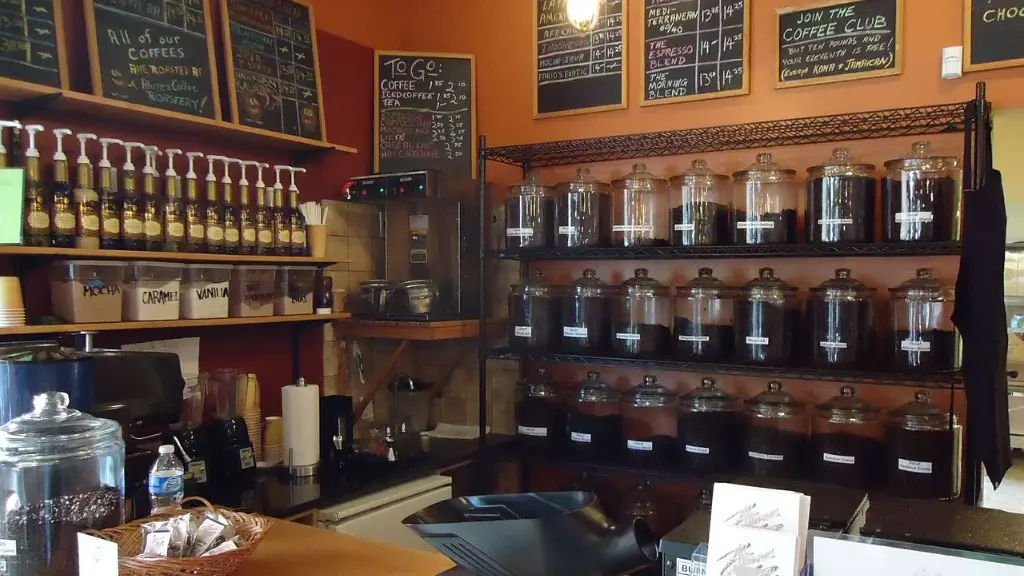For those with a passion for baking, starting a bakery may seem like a dream come true. But before diving in, it’s important to understand the potential costs involved. Here’s a rundown of some of the key expenses associated with opening a bakery.
The cost to open a bakery varies depending on several factors, including the size and location of the bakery, the type of equipment needed, and the amount of start-up capital required. Generally, the cost to open a small, local bakery ranges from around $10,000 to $50,000. For a larger, national bakery, the cost can be upwards of $1 million.
Is owning a bakery profitable?
However, bakeries have great profit potential because they can be operated on lower labor and food costs than other food business models. Nationally, the average revenue for bakeries is between $325,000 and $450,000. Once you run a model of your sales forecasts, you can get an accurate picture of your sales potential.
The average startup cost to open a bakery is between $10,000 and $50,000. This is lower than the average cost of opening a restaurant, largely due to the reduced need for employees, seating, and inventory for most bakery businesses. The reduced overhead costs associated with opening a bakery make it a more attractive option for entrepreneurs looking to enter the food service industry.
How much does it cost to start a home bakery
The average cost to start a bakery out of your home is going to be between $5,000 to $10,000 dollars, according to a recent article in an entrepreneur magazine. This cost includes the price of baking supplies and equipment, as well as the costs of renting a commercial kitchen space or converting your home kitchen into a commercial one. If you’re serious about starting a bakery, it’s important to factor in these costs so that you can create a realistic business plan.
There are many things to consider when starting a bakery. The first step is to decide on the type of bakery you want to open. There are many different types of bakeries, from small mom and pop shops to large commercial operations. Once you have decided on the type of bakery you want to open, the next step is to write a business plan. This plan will outline your business goals, strategies, and how you plan on achieving them.
After the business plan is complete, the next step is to find the perfect location for your bakery. This location should be accessible to your target market and have the necessary utilities and space to accommodate your business. Once you have found the perfect location, the next step is to obtain the necessary licenses and permits.
After the licenses and permits are obtained, the next step is to register your business for taxes and obtain an Employer Identification Number (EIN). The next step is to brand your bakery. This includes creating a name, logo, and identity for your business. Once your bakery is branded, the next step is to separate your business finances. This means opening a business bank account and credit card and keeping personal and business finances separate.
The final step is to secure funding for your bakery. This funding
What are the weaknesses of a bakery?
Poorly operated bakeries are a huge waste of resources. Not only do they use more ingredients than necessary, but they also require more labor to produce the same amount of product. This results in higher expenses and lower profit margins. Inadequate equipment is often the cause of wasted cakes and breads. This is because the baking process is not properly controlled, resulting in products that are either overcooked or undercooked.
The average annual salary for a Bakery Owner in the United States is $71,525 as of February 8, 2023. This is higher than the average salary for most other occupations in the country. Bakery Owners typically have many years of experience in the baking industry and are responsible for the overall operation of their bakery. They typically have a team of employees to help them with the day-to-day operations, and they may also be responsible for marketing and sales.
Is owning a bakery easy?
There’s a lot to think about when running a bakery! You need to make sure you have the right ingredients on hand to bake your goods, and then you need to decide how much to charge for them. It’s an ever-changing experience full of ups and downs, but it’s definitely worth it in the end.
A bakery owner in the United States can expect to make an annual salary of between $64,288 and $96,510. This range will depend on a variety of factors, including experience, location, and the size and type of bakery.
Is it hard to open a bakery
Baking can be a creative outlet for many people, but running a bakery also requires a hard skill set. If you can take on the responsibility of directing and managing the business end, you’ll be able to tap into your creative side to dream up any number of baked goods to sell. Starting a bakery business is possible with the right planning and execution.
When starting your bakery business, there are a few mistakes you’ll want to avoid. One of the biggest mistakes is over-promising and under-delivering. Customers will appreciate you more if you give them what they want, rather than what you think they want. Another mistake is not listening to customer feedback and acting on it. By offering low prices for high-quality products, you’ll be sure to attract more customers. And finally, make sure your food is always fresh!
Is a home bakery worth it?
There is no one-size-fits-all answer to this question, as it all depends on what you’re trying to achieve with your bakery business. If you focus on custom work, such as cakes for big events, you can potentially make $1,000 or more per month. However, if you only take on a few individual custom orders each week, you can expect to make around $300 per month on average. Ultimately, it all depends on your goals and how much you’re willing to put into your business.
How much money does a bakery make per month?
On average, small bakeries have monthly sales revenue of $1,750-$5,450, depending on their market and prices.
Does a bakery need a business license
You will need to ensure that your bakery meets all of the requirements under the Health Act (1977), which focus on general hygiene requirements around food and beverage handling and transportation. Your bakery will need a business license, as well as a certificate of acceptability to operate.
A bagel is a type of bread product that is round and has a hole in the center. It is boiled before it is baked, which gives it a chewy texture. Bagels are often topped with seeds or malt.
Cream puffs are made from choux pastry, which is a light pastry dough made from flour, butter, water, and eggs. The dough is piped into a round shape and then baked until it is golden brown. The puff is then filled with a sweet or savory filling, such as whipped cream, custard, or savory cheese.
Cornbread is a type of bread made from cornmeal, which is a coarsely ground flour made from dried corn. Cornbread is often flavoured with honey or sugar. It is traditionally baked in a round or square shape.
Blueberry muffins are a type of muffin that is typically made with blueberries, flour, sugar, butter, eggs, and baking powder. They are often topped with a streusel topping, which is a mixture of flour, sugar, and butter.
Whoopie pies are made from two round pieces of cake that are sandwiched together with a filling, such as whipped cream or marshmallow.
What makes a bakery successful?
As a baker, it is important to develop a repertoire of baked goods that are of a high quality and stand out from the competition. This can be accomplished by perfecting recipes, using the best ingredients, and paying attention to detail. In addition, it is important to be creative and come up with new and unique baked goods that will appeal to customers. By offering a superior product, bakers can build a successful business that will be resistant to competition.
Marketing is crucial for the success of any small business, and that is especially true for bakeries. If people don’t know your bakery exists, they will not be able to buy your products. You need to let people know about your business through marketing efforts such as advertising, public relations, and social media. Without a solid marketing plan, your small bakery business is likely to fail.
What are the do’s and don’ts in a bakery
Baking is all about precision, so it’s important to make sure you’re using the correct measurements. Here are some do’s and don’ts when it comes to measuring for baking:
DO get yourself a set of proper measuring cups and spoons. These are usually marked in tablespoons and teaspoons and will give you the most accurate measurements.
DON’T use liquid measuring cups with dry ingredients. The measurements will be off and you’ll end up with a runny or dry dough.
DO read and follow directions carefully. Baking is a science, so it’s important to be precise with your measurements and follow the recipe to a T.
DON’T use your measuring cup to scoop out flour. This will compress the flour and you’ll end up with too much. Instead, use a spoon to lightly fill the cup.
DO pack brown sugar into measuring cups and spoons. This will ensure you have the right amount of sugar for your recipe.
1. Shelf Life Management:
Keeping track of expiration dates and making sure products are used before they go bad can be a challenge, especially for busy households.
2. Allergen Control:
For families with members who have allergies, it is important to be extra careful when it comes to food preparation and storage.
3. Supply Chain Disruptions:
From bad weather to transportation delays, disruptions in the supply chain can often lead to shortages of certain products.
4. Changing Consumer Preferences:
As consumer tastes and preferences change, businesses need to be adaptable in order to keep up with demand.
Conclusion
There is no definitive answer to this question as the cost of opening a bakery will vary depending on a number of factors, including the size and location of the bakery, the type of equipment needed, and the amount of start-up capital required. However, some estimates put the cost of opening a small bakery at around $10,000-$20,000, while the cost of opening a larger bakery can be upwards of $50,000 or more.
A bakery can cost anywhere from a few hundred to a few thousand dollars to open. It all depends on the size and location of the bakery, as well as the type of equipment that is needed.





